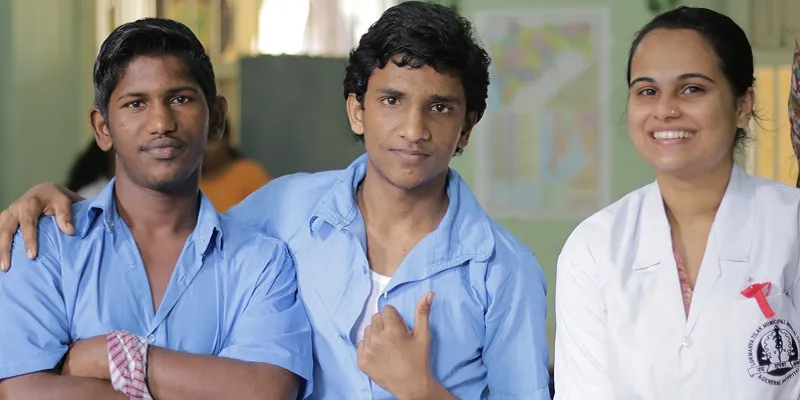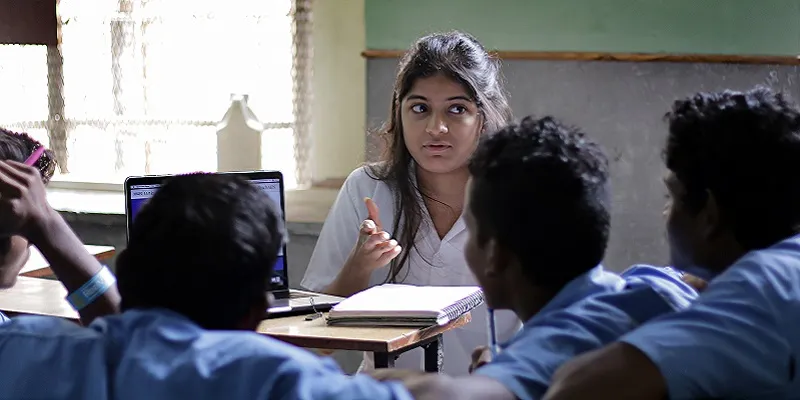This non-profit’s work is giving a new lease of life to many juvenile offenders
Started by a law graduate, Healing Dove Foundation works closely with young delinquents at David Sasoon Juvenile Home in Matunga, Mumbai.

It was a chance fieldwork opportunity at the juvenile home in Yerwada that changed Nitika Nagar’s life forever. For the 23-year-old law graduate, who was then researching into the juvenile justice system in India from a socio-economic angle, learning about the circumstances that led to the offenders ending up in jail was a shocking revelation.
Many juveniles I spoke to had lost their sense of right and wrong in life, explains Nitika adding that that’s when she decided to start an initiative that would benefit many children like them.
Recognising how there was a dearth of NGOs working in the juvenile justice space, Nitika then formed Presthi, a team of dedicated students who started working towards the reformation of children in juvenile homes. Operating as a subsidiary organisation under Alexis Society, Preshti strived to enhance the communication skills and confidence building of juvenile delinquents until she left the team.
And for Nitika, who moved back to Mumbai after her graduation, it marked a fresh start with the founding of Healing Dove Foundation in 2017.
Juvenile delinquency, a pressing issue in India
According to the National Crime Records Bureau (2015), Maharashtra has the second highest number of juvenile delinquents in the country. However, for youngsters like Nitika, it’s the solution that’s more important than the larger problem.
Our country believes that retribution, i.e. punishment is the solution to increasing crime rates committed by underage criminals. One needs to understand that these underage criminals come from homes and families where they see violence. They witness alcoholic fathers take to domestic violence. They grow up learning what they see, she explains.
Data shows that most of the delinquents are often influenced by abusive parenting, peer pressure, and economic crisis. Lack of rehabilitation opportunities force them to become repeat offenders and return to remand homes.
“We have seen families abandon delinquents because of the shame they bring to the family within their neighborhoods, rather than accepting them back and directing them on the right path. Crime breeds crime in a vicious cycle, hence reformation and rehabilitation are the correct measures to intervene and break this,” shares Nitika, stressing the importance of intervention programmes.
Taking baby steps to solve the bigger issue
Brainchild of Nitika, Healing Dove Foundation started as a self-funded initiative last year. Though the newly founded non-profit is yet to find its feet, Nitika explains how they now have their own HR policies, programme documentations and are setting up a monitoring and evaluation mechanism which most NGOs have. “However, our funding at the moment is still dependent on donor contributions,” she adds.
Nitika has also recently chosen the crowdfunding route to help provide delinquents and youths at risk with opportunities to pursue academic and industrial training, post their release from juvenile homes. “Crowdfunding solves a dual purpose. Apart from enabling us to reach out to more people for funding, it also creates awareness about the issue,” she says.
Functioning in the role of a managing trustee, Nitika is also assisted by her mother Dr Pradnya Nagar and Mansi Thakkar in her efforts.

Instead of choosing to work on project basis, the foundation focuses on working closely with a batch of 20-25 boys every six to eight months. The transformational rehabilitation process (modeled on self-development programme/rehabilitation and settlement (RESET), begins with intense individual and group therapy followed by life skill training. This is then followed by the inmates being inducted in industrial training so that they can build on their choice of profession and become employable.
Reformative measures and challenges involved
“Therapy and life skill training tackles and reforms their mindsets, transforming their outlook and perspective towards their own futures. It also enables them to find their own purpose in life and work towards it,” says Nitika, who believes in hand holding each inmate throughout their reformative journeys.
I have had many boys come up and tell me ‘tai mala marg dakhwa’ (you have shown me the right way) and ‘mi punha hi chook karnar nahi’ (I will not repeat this mistake) post the programmes. Their will to turn their own lives around has brought me to tears, Nitika says emotionally.
Explaining the multiple challenges involved in working with juvenile delinquents, she shares: “Firstly it takes a lot of convincing to administer therapy to the delinquents in question. The second challenge is the environment in itself where there is no segregation of habitual and repeat offenders. Thirdly, the juvenile homes are not well equipped to carry out our reformative procedures owing to budgetary cuts and financial insufficiency”.
Till date, many juvenile homes in India lack proper counselling facilities, medical facilities and educational assistance for the delinquents who wish to continue their academics. “There is no proper individual plan in place to reinstate them back into the society once they are released,” adds Nitika.
Of success stories, learnings, and way ahead
Despite several challenges involved, Nitika and her team of students (as part of Preshti) had successfully counseled and administered life skill training to 40-50 children in the juvenile homes of Pune.
The foundation has been working with first batch of 25 boys at David Sasoon Home in Mumbai’s Matunga since the start of the year. “Our RESET process has kickstarted with group and individual therapy being administered by our team of psychotherapists. As of August 2018, the delinquents will be inducted in various organisations that will provide training in fields ranging from hospitality, tourism, information technology, and healthcare,” shares Nitika.
Though the authorities have been fairly cooperative, she opines that they need to be more involved and supportive when it comes to the delinquent's well-being.
Well there are two things that keep me motivated. One is the feeling of contentment which I experience when I am working with the inmates. That feeling is priceless. Second, the realisation that I have the power to transform lives and have people by my side to support my vision gives me a sense of purpose, concludes Nitika.







